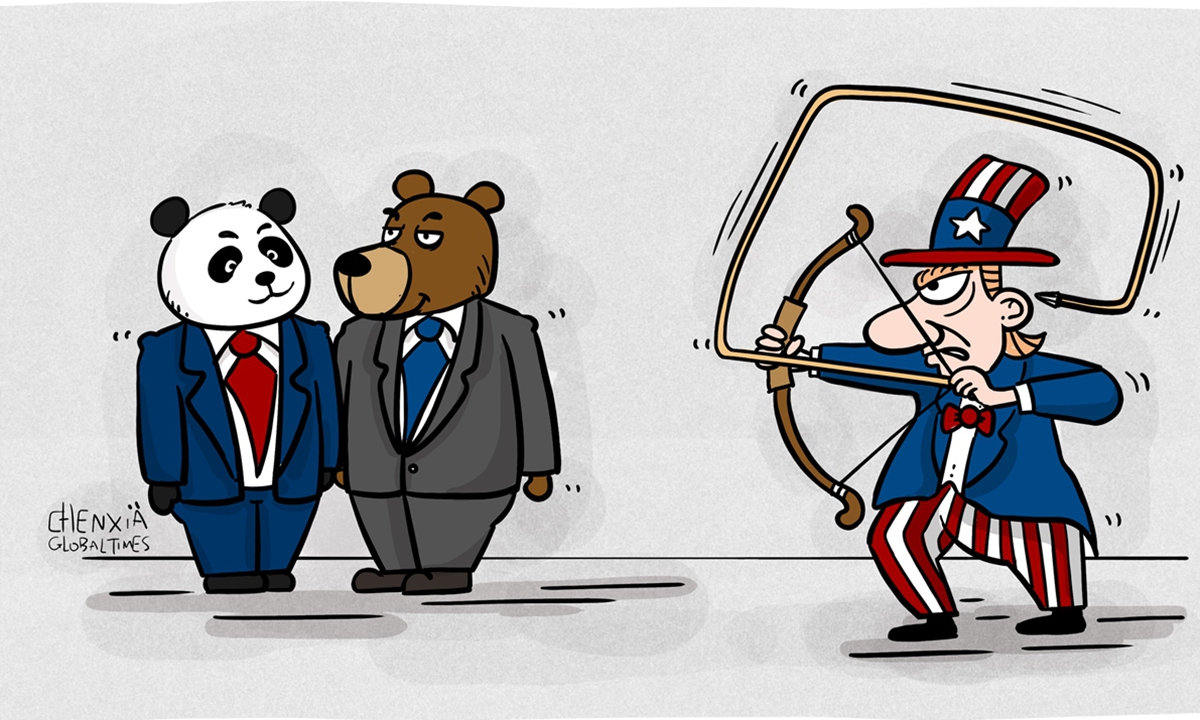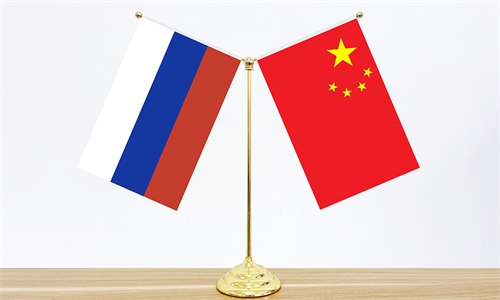
Illustration: Chen Xia/GT
As Russian philosopher and political analyst Aleksandr Dugin says, the unipolar world, globalist ideology, and Western hegemony are collapsing, and the US doesn't want to sit idly by. Washington is willing to take any action to stop this from happening. Thus the problem of Ukraine arose when the US declared an "impending Russian invasion."However, the current Ukraine crisis is not essentially a Russian-Ukrainian problem, but a US-European one. The US instigation of the Ukraine crisis aims at killing two birds with one stone, cracking down on Russia and stabilizing NATO. As nowadays the European members of NATO are increasingly alienated from the US, the US needs to take advantage of the Ukraine crisis to divide Russia and Europe, consolidate NATO and enhance US' control over the organization. As a result, the European countries would have to strengthen NATO as well as the transatlantic alliance.
In addition to Ukraine, there are a lot of other leverages available for the US in Europe. Small countries like Lithuania can be easily controlled and used by the US. The US is more concerned about the lack of compliance by large countries like Germany and France, which could lead to the Europe-US relations derailing from the current track. That's the reason why the US is desperately trying to screw up the Nord Stream-2 gas pipeline project and stop Germany and Russia from forming some kind of economic partnership.
What the US has done in Europe to target Russia is similar in nature to its anti-China operations in the Asia-Pacific region. The US pursuit of globalism since World War II has essentially been a desire for maintaining a world in which it has the upper hand. At present, the US is trying to expand its circle of friends, while excluding only China and Russia. This is because, in the US' view, only these two powers have the ability to protect their sovereignty.
Ultimately, the US does not want another dominant country to emerge outside North America. China is the world's second-largest economy and has sufficient military defense capabilities, while Russia is a formidable military power with a vast territory and plentiful resources. Meanwhile, the high degree of strategic coherence between China and Russia would be the envy of all historically aligned countries. The partnership between China and Russia is not an alliance. But the two offer solid support to each other politically and economically. With deep and stable political, economic and security cooperation, China and Russia will ensure that there is more than one pole in the world, inspiring other countries to do their best to become fully sovereign.
Because the US understands the power of China and Russia, it has been trying to tell a story of "evil China and Russia uniting to pose threats to the world" and constantly touting the "threats" of Chinese-Russian cooperation. The US used to believe that Russia would assimilate with Europe in the manner it preferred after the disintegration of the Soviet Union, but the reality turns out to be a different story. This has made the US uneasy and its anxieties further increased with the rise of China as a civilization different from the West. As a result, there is the inevitable demonization of China and Russia. This, however, makes no sense as nothing can stop China's development or the friendship between China and Russia.
The China-Russia relationship has become the cornerstone of multi-polar international order. The unipolar era was only a fleeting illusion for a decade or so after the Cold War, but the US still seeks to maintain it. Nonetheless, China and Russia exist as two bastions in the world that the US cannot break through, which is a basic guarantee of a multipolar world.
The author is a research fellow at the Chinese Academy of Social Sciences. opinion@globaltimes.com.cn


